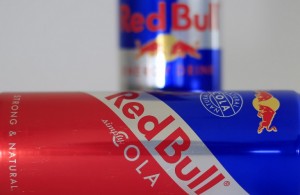
Senior executives from Monster Beverage, Red Bull and Rockstar joined forces on Capitol Hill on Wednesday to fight off growing claims that their caffeine-rich products are hazardous to young people’s health. AFP FILE PHOTO
WASHINGTON—The multibillion-dollar global energy drink industry joined forces on Capitol Hill on Wednesday to fight off growing claims that their caffeine-rich products are hazardous to young people’s health.
Senior executives from Monster Beverage, Red Bull and Rockstar told the US Senate’s Commerce Committee that they do not pitch their drinks at children, despite their aggressive use of social media and sponsorship of action sports.
“Monster is, and always has been, committed to ensuring that all of the ingredients in its energy drinks, including caffeine, are safe and in regulatory compliance for their intended use,” Monster Beverage chief executive Rodney Sacks said.
Energy drinks are a small but growing segment in the non-alcoholic beverage industry in the United States, but health experts have expressed concern that their caffeine content poses risks in youngsters as heart arrhythmia and higher blood pressure.
Last month, the American Medical Association called for a ban on the marketing of energy drinks to children and teenagers, said Senator Jay Rockefeller, the commerce committee chairman, at the start of the hearing.
He stated that in the first six months of this year, poison control centers in the United States received about 1,500 reports involving energy drinks, “more than half of which involved children under the age of 18.”
‘Caffeine toxicity’
Sitting in the hearing room was Wendy Crossland, who in October 2012 sued Monster Beverage after her daughter Anais Fournier died in December 2011 after consuming two 24-ounce cans of Monster energy drink within 24 hours.
The cause of death, according to the girls’ doctors in Maryland, was caffeine toxicity.
In his thick South African accent, Monster Beverage’s Sacks argued that, at 160 milligrams, a 16-ounce can of Monster Energy—its best-selling product—had just under half the caffeine of a similar-sized cup of Starbucks coffee.
“The safety of caffeine and other ingredients in Monster energy drinks is well established by an overwhelming body of generally accepted literature published by reputable third parties,” he said.
He also stated that Monster’s primary demographic is young adult males, and that it “does not focus its brand initiatives on young teenagers,” although it sponsors a so-called Monster Army to support and develop teenaged athletes.
Red Bull North America vice president Amy Taylor said Red Bull products, first launched in Europe in 1987 and now sold in more than 165 countries, are sophisticated premium beverages aimed squarely at adults.
She used Wednesday’s hearing to announce that it would limit to 80 milligrams per 8.4 ounces the amount of caffeine in its drinks, and that it would never use child- or teen-oriented characters in its animated “Red Bull gives you wings” advertisements.
But she was caught off-guard when Senator Ed Markey of Massachusetts drew attention to a post on Red Bull’s Instagram feed that recommended that consumers wash down a sleeping pill with a can of Red Bull and then “let the battle begin.”
“It shouldn’t have been messaged,” she said.
Rockstar co-owner Janet Weiner said she felt “victimized” by the negative attention being given to energy drinks, but promised—as did Sacks and Taylor—to review her company’s social media sites and pull down any posts that encourage unhealthy consumption of energy drinks.